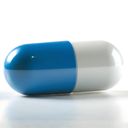Common Urinary Disorders Medication: What You Need to Know
March 13, 2023There are a number of different urinary conditions that make up urinary disorders. While these all impact the urinary tract and urination, they do have different symptoms and treatments. The medication you may be prescribed depends on the condition and a number of other factors.

The Inside Rx Blog
Get the Inside Scoop on tips & tricks that may help your family save on prescriptions!
Subscribe to stay up to date with the latest news and tips
The urinary system consists of the kidneys, ureters, bladder and urethra, and each part plays a significant role in a person’s health. The urinary system filters blood, removing toxins and waste through urine. To be able to urinate normally, all parts need to be working correctly.
Urinary disorders are conditions that affect the urinary tract and the process of urination. There are many kinds of urinary disorders, and treatment is intended to address their root cause and symptoms.
Below, we will discuss five conditions that affect the urinary tract, types of commonly prescribed urinary disorders medication and the factors doctors consider when deciding which prescription is the best medicine for urinary disorders to prescribe to a patient.
Common Urinary Disorders Medication by Condition
Urinary Tract Infections (UTIs)
A UTI is a common bacterial infection that can affect any part of the urinary system. It is often referred to by different names depending on which part is infected. Symptoms vary depending on whether the UTI is present in the kidneys, bladder or urethra.
| Part of the Urinary Tract Affected | Name of the Condition | Examples of symptoms of the Condition |
|---|---|---|
| Urethra | Urethritis | Pain: while urinating, during sexual intercourse, penile discharge, pain in the pelvis |
| Bladder | Cystitis | Pain, stinging or burning while urinating, a strong urge to urinate, blood in the urine, frequent urination, dark, strong-smelling or cloudy urine, pain or pressure in the lower abdomen |
| Kidneys | Pyelonephritis | Frequent and painful urination, cloudy, bloody or strong-smelling urine, nausea and vomiting, fever and chills, back pain |
Both men and women can develop a UTI. However, women are at higher risk—research shows that almost half of all women will experience at least one UTI in their lifetime. This is because the urethra in women is near the anus. It is also shorter than men’s, allowing bacteria to travel faster to the bladder.
Treatment
Treatment depends on whether your UTI is simple or complicated. The former typically affects only the bladder and occurs in people with otherwise-healthy urinary tracts. Meanwhile, complicated UTIs are infections in abnormal urinary tracts. Typically, they are recurring and resistant to conventional treatment. UTIs that affect the kidneys are generally considered to be more complicated.
Simple UTIs are treated with a short course of antibiotics. On the other hand, complicated UTIs may require a longer course of antibiotics or antibiotics administered via IV in a hospital setting. You may also be prescribed urinary disorders medication to help soothe pain and irritation, such as phenazopyridine (Azo-Standard®, Baridium®, Uristat®).
The following are some antibiotics that are often prescribed to people with bacterial UTIs.
| Type of UTI | Generic Name of Medication | Examples of Brand Names |
|---|---|---|
| Simple | Nitrofurantoin | Macrobid®, Furadantin® |
| Simple | Trimethoprim-sulfamethoxazole | Bactrim®, Bactrim® Ds |
| Simple | Fosfomycin (for women) | Monurol® |
| Complicated | Amoxicillin | Moxatag® |
| Complicated | Cefaclor | |
| Complicated | Ciprofloxacin | Cipro®, Proquin® |
| Complicated | Levofloxacin |
*Generic only
A UTI may sometimes be caused by a virus or a fungus. Viral UTIs are treated with antivirals like cidofovir. Meanwhile, a person with a recurring fungal UTI may be prescribed an antifungal agent such as fluconazole.
Overactive Bladder (OAB) Syndrome
OAB syndrome affects about 33 million people in the U.S, and they are especially common in older adults. Its symptoms include:
- Urinary urgency, or a sudden and uncontrollable need to urinate
- Urge incontinence, or a sudden and uncontrollable urge to urinate that leads to leakage
- Frequent urination
- Nocturia, or the need to urinate at least twice a night
Treatment for OAB Syndrome
OAB syndrome has several possible causes, such as infections, being overweight, hormonal changes after menopause and nerve damage. Treatment for this condition includes lifestyle changes like reducing the intake of tea and coffee.
If you have OAB syndrome, you may also be prescribed urinary disorders medication that help restore the normal function of your bladder such as the following:
| Generic Name | Brand Name |
|---|---|
| Oxybutynin | Ditropan® |
| Tolterodine | Detrol® |
| Solifenacin | VESIcare® |
| Vibegron | Gemtesa® |
| Mirabegron | Myrbetriq® |
| Trospium Chloride | Sanctura® |
Kidney Stones
These are small, hard and pebble-like deposits composed of minerals and salts. They can form in one or both kidneys if there is too little liquid in the urine, causing crystals to form. These crystals are mostly passed through the urine with little or no pain. However, if the crystals are too large, they can create a blockage in the kidney, ureter, bladder or urethra, resulting in symptoms such as:
- Severe pain in the back and sides
- Pain that comes in waves
- Cloudy or strong-smelling urine
- Nausea and vomiting
- Urine that is red, brown or pink
- Pain while urinating
- Frequent urination
- Urinating in small amounts
- Fever
Treatment for Kidney Stones
Small kidney stones don’t usually require treatment. If you feel discomfort or mild pain while passing a stone, you may find relief from over-the-counter medications such as naproxen sodium and ibuprofen.
Depending on the type of kidney stone you have, your doctor may also recommend urinary disorders medication to help you pass the stone or prevent it from getting larger. Some examples are:
| Generic Name | Brand Name |
|---|---|
| Potassium citrate | Urocit-K® |
| Hydrochlorothiazide | Oretic® |
| Allopurinol | Allopurinol® |
Benign Prostatic Hyperplasia (BPH)
While technically not a disorder of the urinary tract, BPH or enlarged prostate often results in difficulty urinating. This is because an enlarged prostate gland may block the flow of urine and cause other urinary symptoms, such as:
- Urinary retention, or the inability to urinate
- Nocturia
- Urinary urgency
- Urinary incontinence
- Painful urination
- Inability to completely empty the bladder
Treatment for BPH
Patients with BPH may be prescribed urinary disorders medication to help alleviate these and other symptoms. Some Rx drugs that you might be prescribed if you have BPH are as follows:
| Generic Name | Brand Name |
|---|---|
| Tamsulosin | Flomax® |
| Finasteride | Propecia®, Entadfi® |
| Alfuzosin | Uroxatral® |
| Dutasteride | Avodart® |
| Silodosin | Rapaflo® |

Why GLP-1 Drugs Are Changing Diabetes Treatment Forever

Vyvanse Coupon Guide 2025: How to Cut Your Prescription Costs

Chronic Kidney Disease: Warning Signs You Shouldn't Ignore

Seasonal Allergies Treatment: Simple Solutions That Bring Real Relief
How Doctors Decide the Best Medicine for Urinary Disorders to Prescribe
When prescribing medication for urinary disorders, physicians consider a large number of factors. These include:
- Your medical history
- The kind of urinary disorder you have
- Your symptoms
- The goal of treatment
- Results of urinalysis and other relevant diagnostic tests
- If you have a history of UTIs or related urinary disorders
- Any medication or supplements you are currently taking
An extra step that some doctors take is to factor in drug prices when determining the best medicine for urinary disorders to prescribe. This is because many people who can’t afford their prescription medication skip or cut doses, making treatment ineffective. Some doctors also ask their patients if they have access to a prescription discount card to better gauge their ability to complete their treatment.
Finasteride
$ 9.30Hydrochlorothiazide
$ 7.87Save on Out-of-Pocket Medication Costs With Help From Inside Rx
You can save money on your urinary disorders medication by asking your doctor to prescribe generic medication. Another great way to save is to use your Inside Rx discount card.
Inside Rx is a free prescription savings card that helps users find the best deals on their prescription medication at nearby pharmacies. When you use Inside Rx, you can save up to 80 percent off brand and generic medications.
Inside Rx is free to download and use. You also don’t need to sign up or provide any personal information. Just save the card to your device or download the free mobile app to get started. You can save at over 60,000 pharmacies in the U.S. and Puerto Rico.
To learn more about Inside Rx and how it works, visit our help page.
Sources:
- https://bio.libretexts.org/
- https://my.clevelandclinic.org/health/diseases/22858-urethritis#symptoms-and-causes
- https://www.medicalnewstoday.com/articles/best-medication-for-uti#first-line-antibiotics
- https://pubmed.ncbi.nlm.nih.gov/17402842/
- https://www.nationwidechildrens.org/-/media/nch/for-medical-professionals/practice-tools-new/prescribing-guidelines-for-urinary-tract-infections.ashx
- https://www.niddk.nih.gov/health-information/urologic-diseases/urinary-retention/symptoms-causes
- https://www.betterhealth.vic.gov.au/health/conditionsandtreatments/urinary-system#common-problems
- https://medlineplus.gov/ency/article/003143.htm